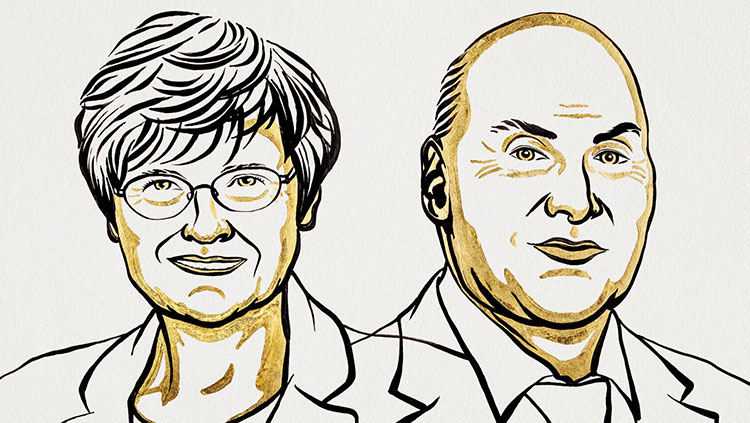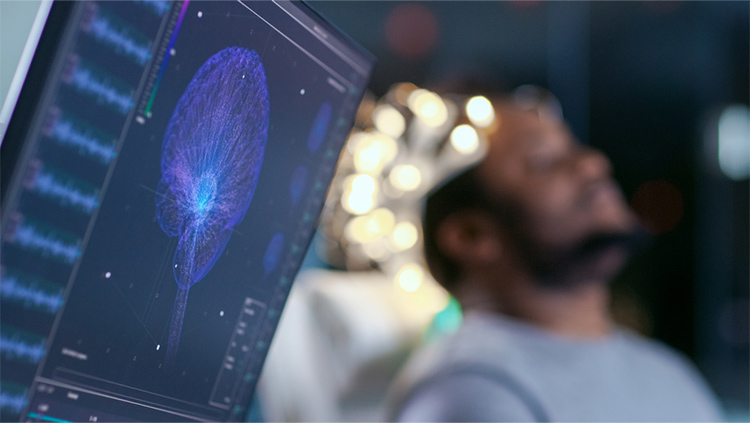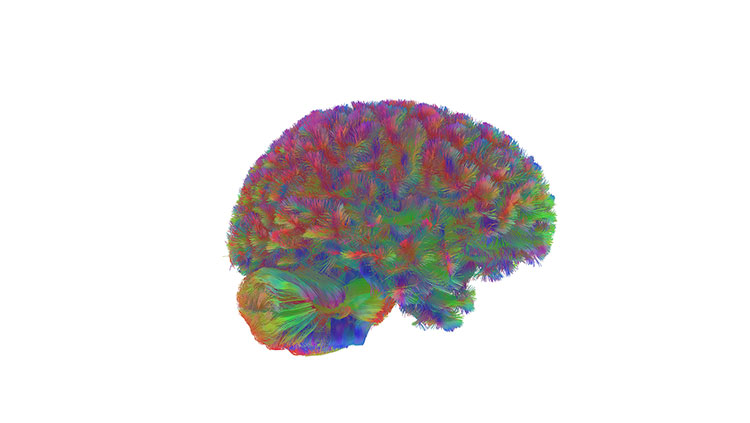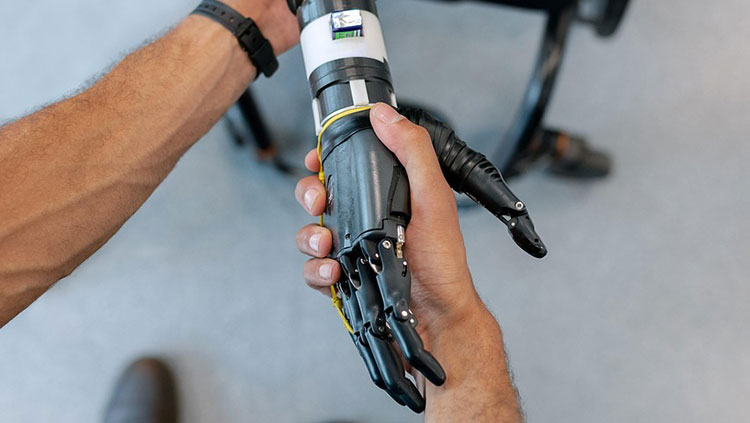ICYMI: Researchers Win Nobel in Medicine for Discovery That Led to mRNA COVID Vaccine
- Published12 Oct 2023
- Author Christine Won
- Source BrainFacts/SfN

The 2023 Nobel Prize in Physiology or Medicine went to immunologist Drew Weissman and biochemist Katalin Karikó for their discovery that built the foundation for the rapid development of COVID-19 messenger RNA (mRNA) vaccines, saving the lives of billions worldwide during the pandemic.
Previously, mRNA vaccines had long been considered an untenable delivery system because of the immune response it triggered when injected.
Overcoming initial skepticism and funding challenges, their discovery back in the 2000s eventually enabled the delivery of mRNA genetic material into cells without triggering the undesired immune reactions. They were able to slip past the cells' immune defenses by switching out one type of molecule (uridine) in the unmodified mRNA with another (pseudouridine). This base modification of mRNA changed the way cells viewed the vaccine, fooling them into at long last lowering their defenses.
Big Picture: While mRNA vaccine technology is not new, the pioneering COVID-19 vaccines were the first to undergo full clinical testing and licensure. Their revolutionary development garnered fanfare as well as some public distrust and hesitancy. The Nobel laureates' work transformed our understanding of the way mRNA and the immune system interact, and it shortened the vaccine development time from its usual five to 10 years to just months at the height of the COVID-19 pandemic. Now, other mRNA vaccines are being developed for various other infectious and noninfectious diseases such as RSV, HIV, influenza, malaria, tuberculosis, Zika, Epstein-Barr virus, and even some types of cancer.
Read More: Pioneers of mRNA COVID vaccines win medicine Nobel. Nature
More Top Stories
- Commonly reported brain fog associated with long COVID may be due to the SARS-CoV-2 infection triggering blood clots, which leave protein signatures in the blood. Scientific American
- Playing a lullaby during routine medical procedures like a heel prick helped newborns notice the pain less. Science News
- A study identified a neural circuit in male mice responsible for their libido, sex drive, and mating behavior. New Atlas
- Bone marrow from the skull may help diagnose and treat brain inflammation. Science News
- A newly discovered brain cell that acts like a hybrid of neurons and glia may shed light on the development of certain neurodegenerative disorders. New Scientist
- Neurons exposed to tau tangles and amyloid plaques — hallmarks of Alzheimer's disease — produce an RNA gene called MEG3, which triggers cellular death. Blocking MEG3 led to cellular survival, opening avenues for potential treatments. BBC
- Songbirds that are the best vocal learners — better able to mimic new vocalizations — have bigger brains and make superior problem solvers. Smithsonian
- A mice study identified the brain circuit behind lactation that connects auditory input to oxytocin neurons and releases breast milk when mothers hear newborns cry. The Guardian
- Generative artificial intelligence is helping researchers use brain scans to objectively measure recovery from treatment-resistant depression, which is hard to quantify. STAT
- Jellyfish learned to navigate mangrove roots — and fast, despite lacking a centralized brain, by combining visual cues and sensory stimulation. Futurity
- A study identified two key brain cell types that may help protect the brain against cognitive impairment and Alzheimer's disease regardless of amyloid plaque buildup. Nature
CONTENT PROVIDED BY
BrainFacts/SfN
References
What to Read Next
Also In Neuroscience in the News
Trending
Popular articles on BrainFacts.org



















